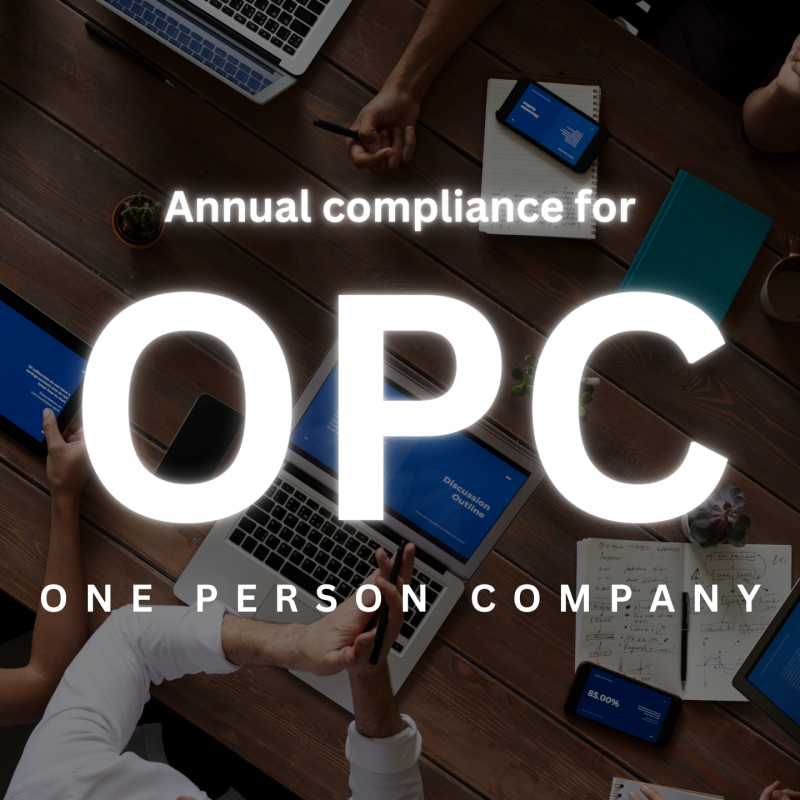Expanding into global markets offers immense opportunities for Indian companies, but it also brings the challenge of adhering to international trade laws. This blog explores key global trade regulations, compliance strategies, and common mistakes to avoid, ensuring smooth and legal international operations for Indian businesses.
By Guruvind TanwerSep 14, 20248 mins read
Expanding your business by setting up a branch office in India can be a strategic move to tap into one of the world's fastest-growing economies. However, it’s crucial to navigate the regulatory landscape carefully to ensure full compliance with Indian laws. From obtaining the necessary approvals to adhering to various legal, tax, and operational requirements, this blog will guide you the way.
The world of import-export in India requires a solid understanding of compliance regulations. This guide covers essential aspects, from obtaining an Import Export Code (IEC) to managing customs documentation and adhering to GST and FEMA regulations. Learn the basics to ensure smooth and compliant international trade operations for your business. Read more to stay informed!
Unlock the potential of your business with MSME registration in India! This guide covers the benefits, registration process, and compliance requirements to help you navigate the advantages of becoming a recognized micro, small, or medium enterprise. Discover how to leverage government schemes, financial incentives, and more. Read now!
Digital Signature Certificates (DSC) play a crucial role in the digital transformation of businesses, particularly in India, where they are mandated for various regulatory filings with the Ministry of Corporate Affairs (MCA). This blog will explore the significance of DSCs for businesses, their types, application processes, and best practices for effective use.
Navigating labour law compliance in India is essential for businesses that employ workers. These laws ensure fair treatment, safety, and proper compensation for employees. Adhering to these regulations is not just about avoiding penalties; it’s about responsibility and an ethical workplace. This blog covers every key aspect that every employer must know.
Tax Deducted at Source (TDS) is a crucial component of the Indian tax system, ensuring that taxes are collected at the point of income generation rather than at a later date. For businesses operating in India, understanding and complying with TDS requirements is essential to avoid penalties and ensure smooth operations. This blog will provide a comprehensive guide to TDS compliance.
Starting a new company in India is an exciting venture, but it involves navigating a complex legal and regulatory framework. Whether you’re an entrepreneur launching a startup or an established business expanding into the Indian market, understanding the incorporation process is crucial. This guide walks you through the steps required to incorporate a company in India.
Understand the significant impact of data privacy regulations on businesses in India. Our blog breaks down key laws, the importance of compliance, and the steps you need to take to protect your company's data and reputation.
Starting a new business? Ensure you’re on the right track with our guide to essential compliance strategies for startups. Discover key steps to avoid legal pitfalls, from understanding your business structure to adhering to tax regulations and data privacy laws. Learn how to set up robust compliance practices from the beginning and safeguard your startup’s future.
Running a company means navigating a maze of compliance requirements, but some forms, like ADT-1, play a vital role. Discover the essentials of Form ADT-1 with our guide. Learn about its mandatory filing requirements, key deadlines, and the importance of timely submissions. Get practical tips to avoid common mistakes and ensure compliance with auditor appointments and corporate governance.
One Person Company (OPC) is a corporate entity in India that is owned and controlled by a single individual. While offering numerous advantages, OPCs also come with specific compliance obligations. Understanding and adhering to these requirements is crucial for maintaining the company's legal status and avoiding penalties. This blog delves into the essential aspects of annual compliance & filing.
ESIC (Employees State Insurance Corporation)
ESIC is a comprehensive social security and health insurance scheme managed by the Employees' State Insurance Corporation, under the Ministry of Labour and Employment. It provides financial support and medical benefits to employees and their dependents during times of need, such as sickness, maternity, disablement, or death due to employment-related injuries.
Why ESIC Registration is Mandatory:
ESIC registration becomes mandatory for businesses under the following criteria:
Employee Threshold: Businesses with 10 or more employees (in some states, this threshold may vary to 20 employees) must register under ESIC. This requirement applies to employees earning ₹21,000 or less per month.
Legal Obligation: Employers are required to register under the ESIC Act within 15 days of reaching the eligible employee threshold. Non-compliance can lead to penalties and legal repercussions.
Employee Benefits: Registered employees gain access to a range of benefits, including medical care, sickness benefits, maternity benefits, and more. ESIC ensures that employees receive necessary support during times of illness or injury, thereby enhancing their welfare and productivity.
PF (Provident Fund)
PF is a savings scheme aimed at providing financial security to employees after their retirement. Managed by the Employees' Provident Fund Organisation (EPFO), PF contributions are mandatory for eligible employees and employers.
Why PF Registration is Mandatory:
PF registration is compulsory for businesses under the following criteria:
Employee Threshold: Employers with 20 or more employees are required to register for PF contributions. This applies to employees earning up to ₹15,000 per month, though higher-earning employees can voluntarily opt for PF.
Contribution Requirements: Both the employer and employee contribute a fixed percentage (currently 12% each) of the employee's basic salary, dearness allowance, and retaining allowance to the PF account every month. These contributions accumulate over time to provide a lump sum amount to the employee upon retirement or resignation.
Legal Compliance: Employers must register with the EPFO and obtain a PF registration number. They are also required to file monthly PF returns and maintain accurate records of contributions and withdrawals. Compliance ensures transparency and accountability in managing employees' retirement savings.
Benefits of Compliance:
Complying with ESIC and PF registrations offers several benefits to businesses:
Legal Compliance: Ensures adherence to labor laws and regulatory requirements, avoiding penalties and legal issues.
Employee Welfare: Demonstrates commitment to employee well-being by providing access to healthcare and retirement benefits.
Organizational Credibility: Enhances the reputation of the business as a responsible employer, fostering a positive work environment and employee loyalty.
Conclusion
ESIC and PF registrations are not just legal obligations but essential components of responsible business operations in India. By registering under ESIC and PF, businesses uphold their commitment to employee welfare and statutory compliance, contributing to a productive and harmonious workplace environment.
For businesses navigating the complexities of ESIC and PF registrations, consulting with HR professionals or legal experts specializing in labor laws can provide invaluable guidance. Understanding and fulfilling these obligations not only mitigate risks but also empower businesses to focus on their core objectives while nurturing a supportive and compliant workplace culture.
For more queries and updates join our Whatsapp community













